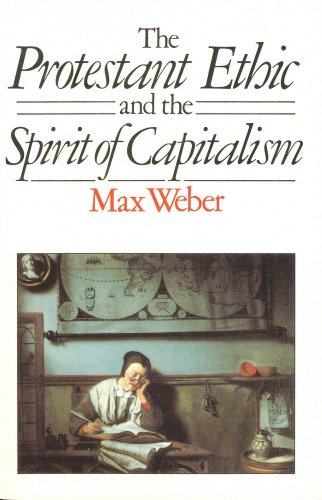

Weber shows that certain types of Protestantism favoured rational pursuit of economic gain and that worldly activities had been given positive spiritual and moral meaning. Many observers like William Petty, Montesquieu, Henry Thomas Buckle, John Keats, and others have commented on the affinity between Protestantism and the development of commercialism.

In order that a manner of life well adapted to the peculiarities of the capitalism… could come to dominate others, it had to originate somewhere, and not in isolated individuals alone, but as a way of life common to the whole groups of man.Īfter defining the 'spirit of capitalism', Weber argues that there are many reasons to find its origins in the religious ideas of the Reformation. The most common tendencies were the greed for profit with minimum effort and the idea that work was a curse and burden to be avoided especially when it exceeded what was enough for modest life. Weber points out that such a spirit is not limited to Western culture if one considers it as the attitude of individuals, but that such individuals - heroic entrepreneurs, as he calls them - could not by themselves establish a new economic order ( capitalism). He defines spirit of capitalism as the ideas and habits that favour the rational pursuit of economic gain. Why was that not the case with Protestantism? Weber addresses this apparent paradox in the book. However, religious devotion was usually accompanied by rejection of worldly affairs, including the pursuit of wealth and possessions. In The Protestant Ethic and the Spirit of Capitalism, Weber puts forward the thesis that Puritan ethics and ideas had influenced the development of capitalism. It is argued that the book should not be viewed as a detailed study of Protestantism but rather as an introduction into Weber's later works, especially his studies of interaction between various religious ideas and economics.


 0 kommentar(er)
0 kommentar(er)
